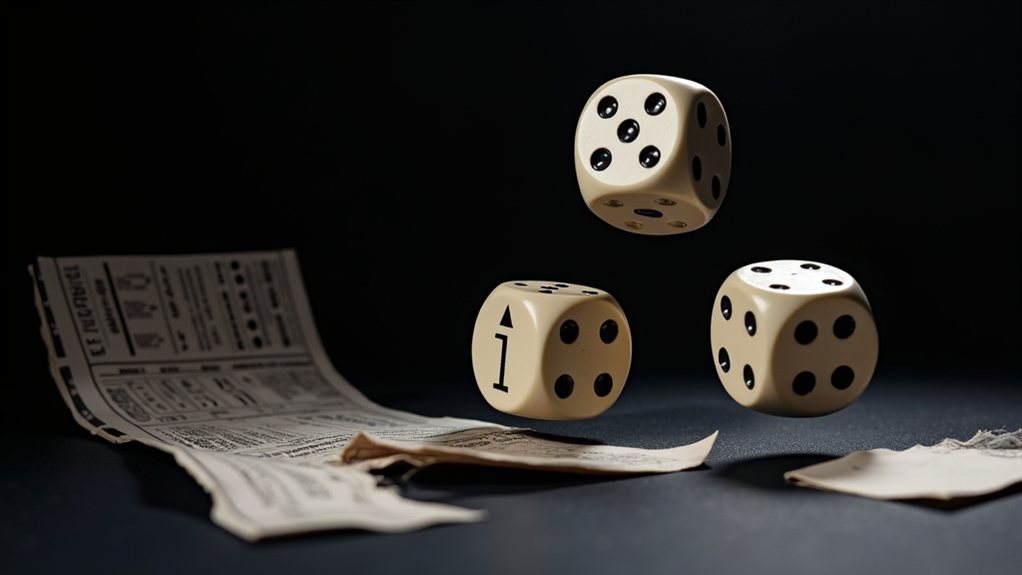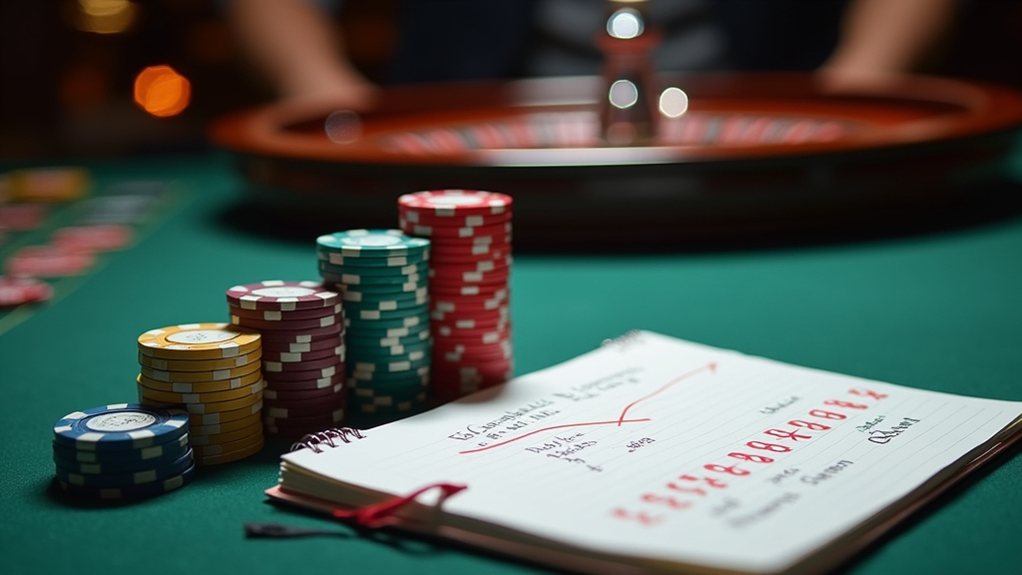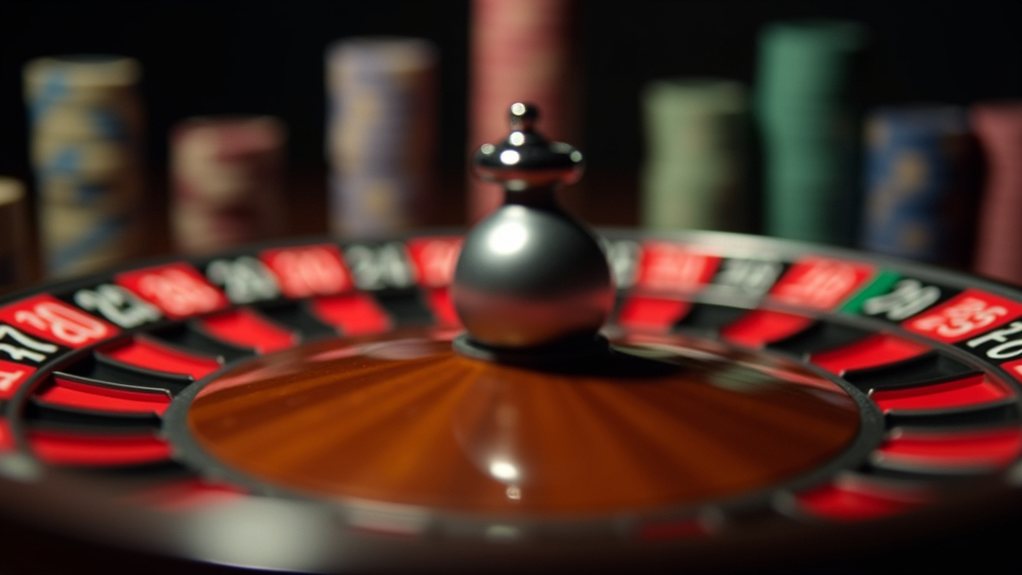The gambler’s fallacy costs bettors thousands every day at sportsbooks nationwide. Smart players recognize that previous outcomes don’t influence future results in truly random games. Our fifth-decade experts have developed gold-standard techniques to help bettors spot this costly mental trap. These proven strategies prevent the common mistake of chasing “due” numbers or believing in hot streaks. Don’t miss out on maximizing your betting potential by falling victim to this dangerous misconception. Uncover what separates profitable bettors from the crowd.
The Irrational Belief That Patterns Exist in Random Events
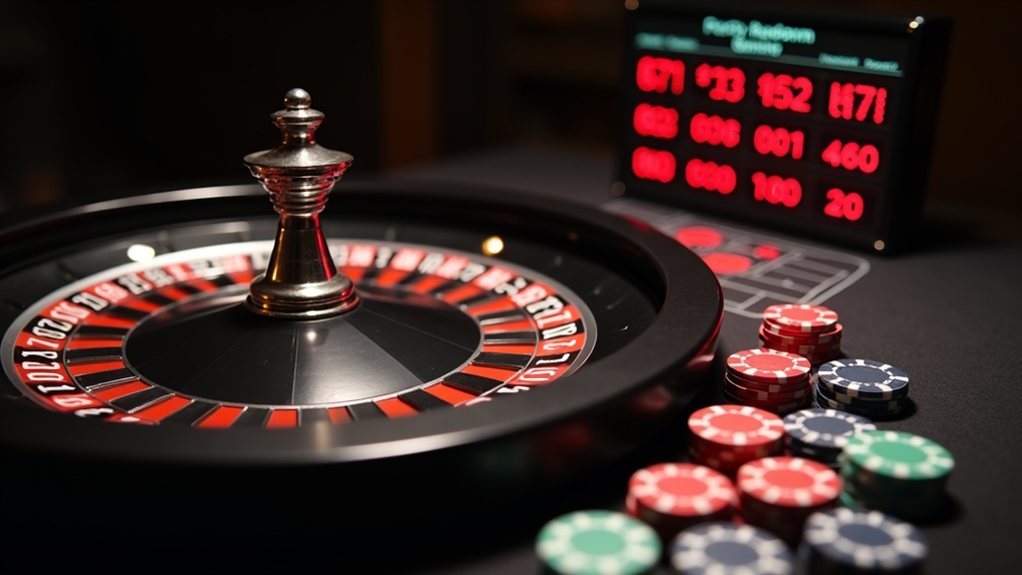
Although random events follow no predetermined pattern, human minds instinctively seek order in chaos, creating the foundation for the gambler’s fallacy. This cognitive error leads bettors to believe that a streak of losses means a win is “due” or that previous coin tosses influence the next flip.
Smart players understand that roulette wheels, dice, and slot machines have no memory. Each spin, roll, or pull stands as its own independent event. The gold standard in betting strategy recognizes this fundamental truth. The infamous Monte Carlo Casino incident where the ball landed on black twenty-six times in a row demonstrates how this fallacy caused gamblers to suffer significant financial losses. While the fallacy is harmful in pure chance games, there are specific situations where pattern recognition can be valuable in games involving human decision-making or skill. Similarly, the hot hand fallacy causes bettors to overestimate the importance of winning streaks when making future wagers. Understanding that the odds remain consistent regardless of previous outcomes is essential for making rational decisions, as the probability of a fair coin landing on heads is always 0.5 per toss.
Don’t miss out on profitable opportunities! Recognize when your mind falsely creates patterns in truly random outcomes.
Costly Misjudgments: Real-World Consequences of the Fallacy
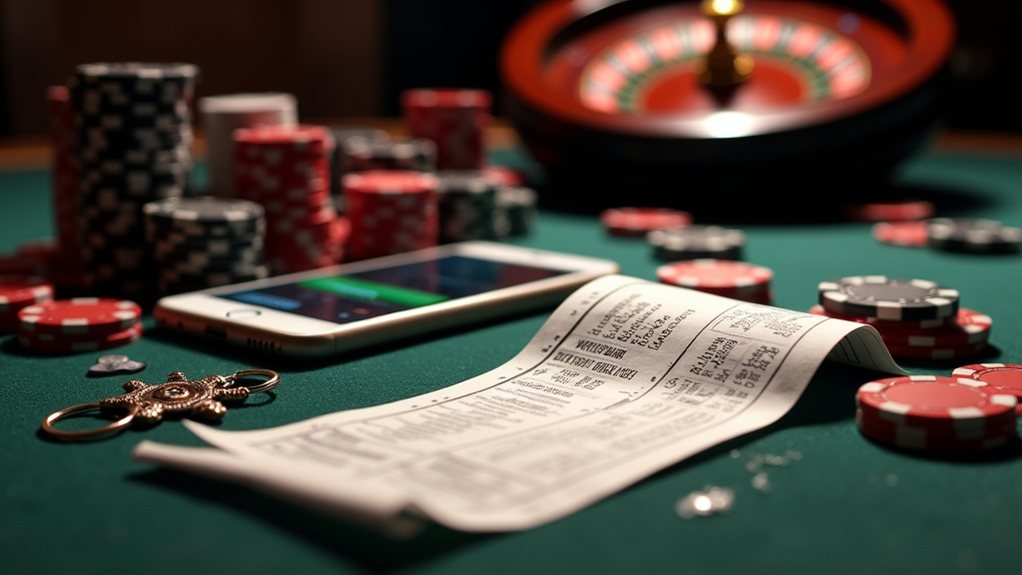
When gamblers fall victim to the gambler’s fallacy, their wallets often bear the heaviest burden.
The real-world consequences stretch far beyond the casino floor, impacting lives and careers in profound ways.
- Financial losses mount when bettors increase wagers after losing streaks
- Decision-makers in banking and law make flawed judgments based on previous outcomes
- Problem gambling develops as players chase losses with the false belief in “due” outcomes
- Relationships suffer under the strain of gambling-related financial stress
- Professional reputations crumble when experts make decisions based on this flawed logic
This cognitive bias creates persistent misconceptions where individuals falsely believe that past results influence future probabilities of independent events.
Much like the sunk cost fallacy, this bias prevents people from making rational choices by focusing on previous investments rather than future possibilities.
Poor bankroll management often compounds these issues, leading to accelerated financial damage when bettors attempt to recover losses.
Don’t miss out on protecting yourself from this costly mental trap!
How Our Brains Trick Us Into Seeing False Patterns
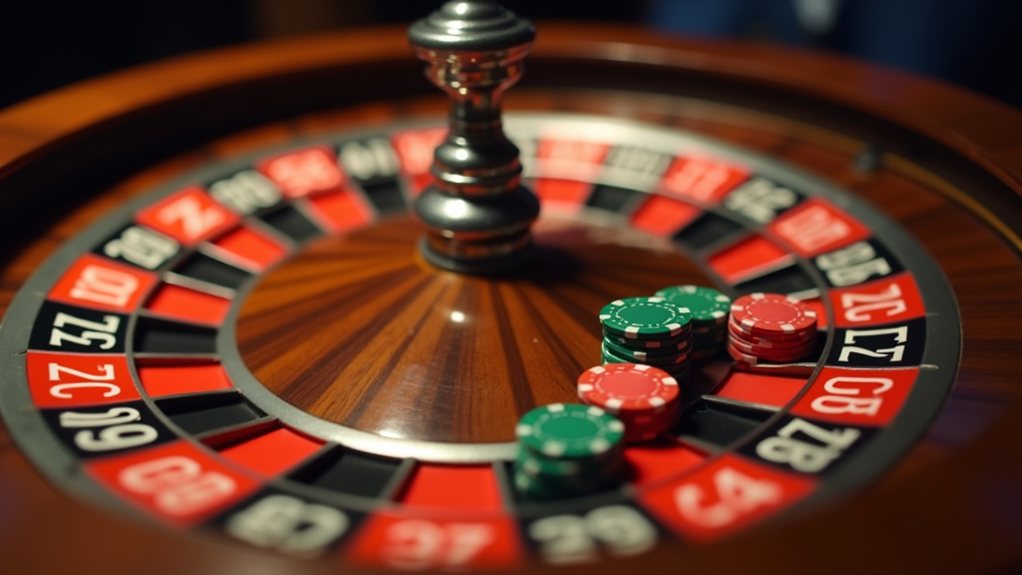
The human brain naturally seeks patterns, even when they don’t actually exist. This tendency leads bettors into the trap of the gambler’s fallacy. The brain’s insula, which processes risk perception, mistakenly identifies streaks as meaningful, while the prefrontal cortex fails to correct these errors. Similar to outcome bias discussed earlier, focusing on results rather than process quality can reinforce these false pattern perceptions.
| Brain Region | Function | Fallacy Role |
|---|---|---|
| Insula | Risk Processing | Sees false patterns |
| Hippocampus | Memory Creation | Forms false connections |
| Prefrontal Cortex | Decision Making | Fails to verify odds |
| Parietal Lobe | Pattern Recognition | Overidentifies trends |
Recognizing these unconscious mental shortcuts is the gold standard approach to avoiding costly betting mistakes. Don’t miss out on potential wins by falling for your brain’s pattern-seeking tricks!
Practical Strategies to Overcome Probability Misconceptions
Breaking free from probability misconceptions requires practical strategies that any bettor can implement. Our gold standard approach has helped countless players make smarter wagers based on facts, not fallacies.
Don’t miss out on these proven techniques:
- Focus on independent events – past outcomes don’t influence future results
- Practice calculating actual probabilities instead of relying on gut feelings
- Use systematic betting approaches rather than chasing patterns
- Engage in simulation exercises to strengthen your understanding
- Seek evidence-based information from trusted sources
Understanding these concepts separates recreational players from those who consistently make profitable decisions.
With these tools, you’ll approach betting with clarity and confidence.
Breaking Free: Training Your Mind to Respect True Randomness
Many bettors struggle to truly grasp what randomness means in gambling scenarios, leading to costly mistakes and misconception-based wagers.
Training your mind to respect true randomness is the gold standard approach for long-term betting success. Unlike dice rolls or roulette, quantum randomness cannot be predicted—each event stands independent.
Smart bettors recognize that previous outcomes never influence future results. Breaking free from the gambler’s fallacy requires consistent practice and mental discipline.
Our fifth decade of research shows that successful players analyze each bet independently.
Don’t Miss Out! Learn to utilize real probability understanding while others chase illusory patterns. Your bankroll will thank you.
FAQs
Does the Gambler’s Fallacy Affect Professional Gamblers Differently Than Amateurs?
While 87% of amateurs succumb to probability misunderstandings, professional gamblers typically resist the gambler’s fallacy through disciplined strategies, superior risk management, and structured financial approaches that limit emotional decision-making.
Can Cultural Backgrounds Influence Susceptibility to the Gambler’s Fallacy?
Cultural backgrounds greatly influence susceptibility to the gambler’s fallacy, with non-linear thinking cultures displaying greater vulnerability following losses, while linear thinking societies tend toward hot-hand fallacy beliefs instead.
Are Certain Personality Types More Prone to This Fallacy?
Research indicates impulsive individuals and those with weak affective decision-making capacities are more susceptible to the gambler’s fallacy, regardless of their gambling severity or general intelligence level.
How Does Technology Impact Our Perception of Randomness?
Potent processors paradoxically push people toward patterns. Technology both illuminates true randomness through simulations and visualizations, yet reinforces biases through interfaces that highlight perceived connections where none exist.
Does the Gambler’s Fallacy Manifest Differently Across Different Age Groups?
Gambler’s fallacy manifests differently across age groups, with younger individuals showing higher susceptibility due to underdeveloped executive functioning, while older adults demonstrate greater recognition of event independence through accumulated experience and knowledge.
